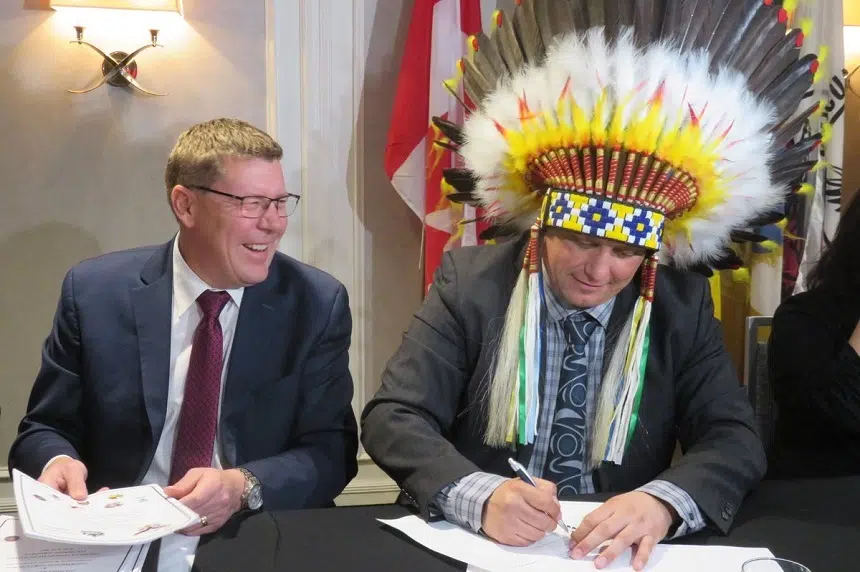The Saskatoon Tribal Council and provincial government are hoping to bring First Nations children home and keep them with their families through a trio of new agreements signed Friday.
The agreements start the process of giving child welfare jurisdiction back to the STC ahead of federal legislation that will mandate Indigenous communities having control over their children.
Included is a partnership agreement that outlines a commitment to keep kids connected to their culture, language, identity and community — which involves a priority to keep families together. It also notes the files of STC First Nations children who are already in care.
“We want to bring them home,” STC Chief Mark Arcand said.
“The province has committed to saying, ‘if we have 250 children in care right now, how do we bring 100 of them home right away?’ ”
Social Services Minister Paul Merriman said they’ll be working to identify children who have been moved outside of their First Nations’ area, and then developing a plan to bring them closer to home so they can maintain a connection with their family.
The partnership agreement incorporates plans to establish a joint child welfare innovation committee and a leaders forum to improve child and family services, and to supervise the progress of work under the agreements.
There’s also a commitment to providing better prenatal care to First Nations mothers to reduce birth alerts and apprehensions in the post-natal period after a child is born.
“It’s not about apprehension,” Arcand said.
“We don’t ever want to hear that word. We want to keep families in their homes, and we want to keep children safe.”
The tribal chief thanked the province and Premier Scott Moe for standing “shoulder to shoulder” with the STC to partner on the agreements to improve lives for First Nations families.
Moe called the progress a “new beginning” for relationships between the province and First Nations in the Saskatoon area.
“What we’re focused on … is to ensure that our communities have the capacity to care for their children in the communities, so they can continue to experience the rich culture that is present there,” he said.
The two other agreements signed on Friday involved a delegation agreement that restores the STC’s agency status as a family services agency, allowing them to deliver services in First Nations communities, and a “First Contact Panel Protocol” to formalize their relationship with social services so families are involved in child protection discussions and planning.
Both Moe and Arcand said the pacts could be used as a framework for other First Nations groups as the federal child welfare reform legislation comes into effect.
“Each agreement has to work for the communities that it’s going to operate in,” Moe said.
“But I think, and hope, that we do have a framework here not only for an agreement but for a relationship, to ensure we can do right by our next generation.”







